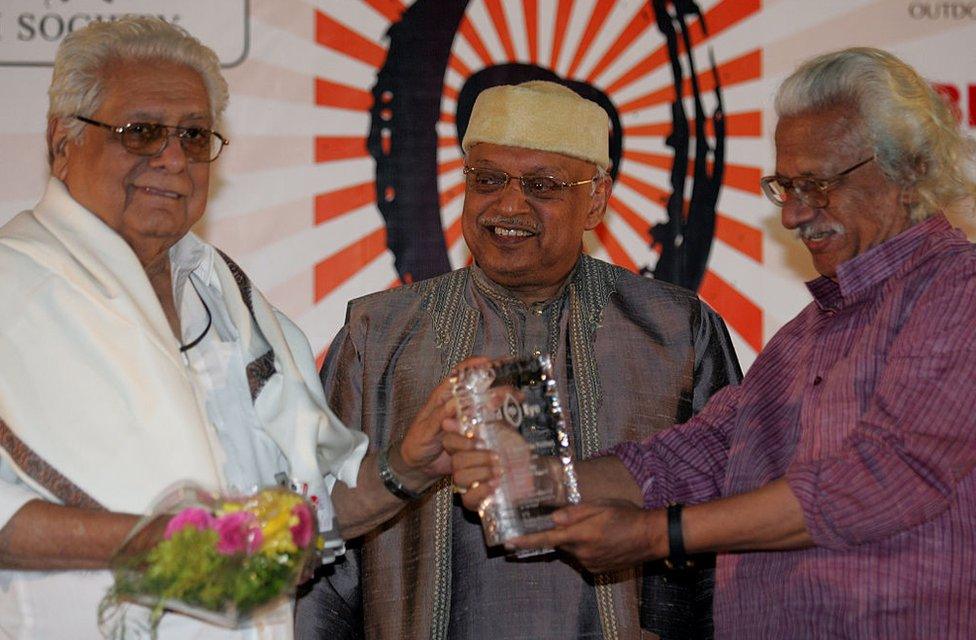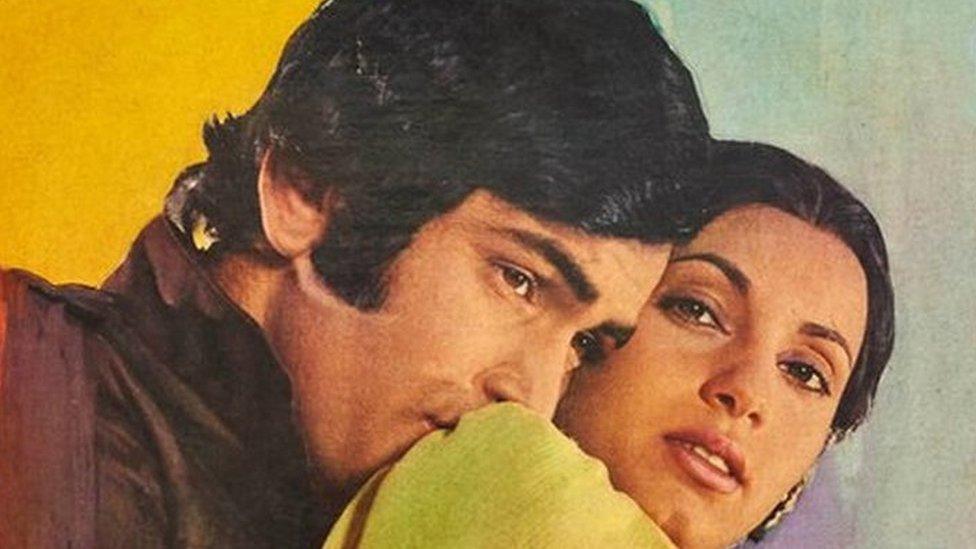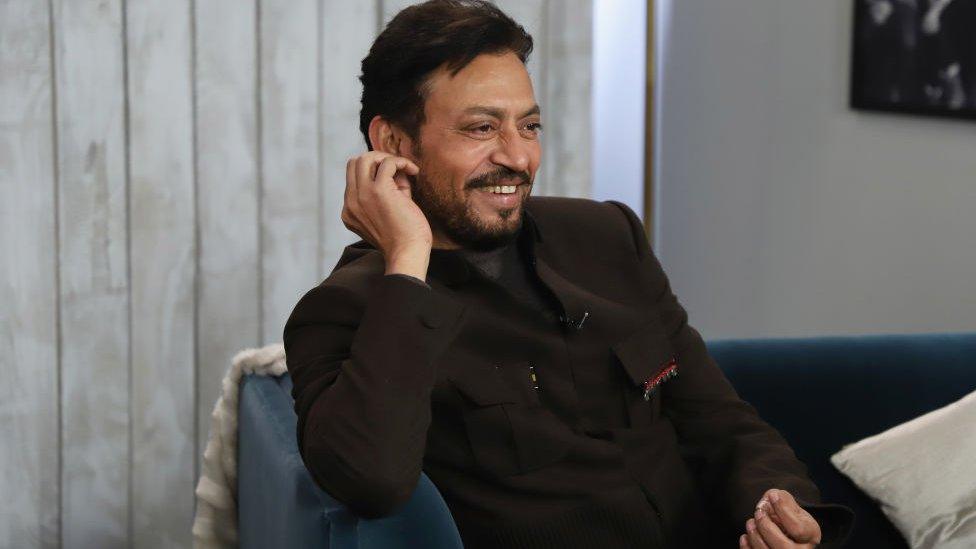Basu Chatterjee: Bollywood's 'chronicler of simple romances' dies at 93
- Published

Basu Chatterjee (left) explored middle-class anxieties of life and love
Legendary filmmaker Basu Chatterjee, who directed simple Bollywood romances and comedies, has died aged 93.
Chatterjee's films were known for telling stories of regular middle-class men and women with humour and sensitivity.
Some of his best-known films included Rajanigandha, Choti Si Baat, Chitchor and Baton Baton Mein.
He also directed the gritty 1986 film Ek Ruka Hua Faisla, a Hindi adaptation of Twelve Angry Men.
His death was confirmed on Twitter by filmmaker Ashoke Pandit, president of the Indian Film and TV Directors' Association.
"I am extremely grieved to inform you all the demise of Legendary Filmmaker Basu Chatterjee ji. His last rites will be performed today at Santacruz crematorium. It's a great loss to the industry. Will miss you sir," he tweeted.
Chatterjee began his career as an illustrator and cartoonist for the Mumbai-based magazine Blitz before moving to Bollywood in the mid-1960s. His debut directorial venture, Sara Akash was critically acclaimed and also won an award.
'Brilliant and sensitive'
Popularly known as Basu-da (a Bengali term for elder brother), he wove magic on big screen through dozens of films made in the 1970s and 1980s.
At a time when action films were all the rage with the audiences, he managed to carve a niche for himself with gentle stories exploring middle-class anxieties of life and love.
He mostly worked with mid-level actors and actresses, his favourite being Amol Palekar, whom he cast as a timid young man in a number of romances.
He also directed superstar Amitabh Bachchan in Manzil, which is known for its hit song Rim Jhim Gire Sawan, an ode to the Mumbai monsoon.
He also directed several Bengali films and serials like Byomkesh Bakshi and Rajani for India's state-run TV channel, Doordarshan.
Following the news of his death, his Bollywood colleagues and fans took to social media to pay tributes to Basu-da.
"Sad to hear of the demise of Shri Basu Chatterjee. His works are brilliant and sensitive. It touched people's hearts and represented the simple and complex emotions, as well as struggles of people. Condolences to his family and innumerable fans," tweeted Prime Minister Narendra Modi.
Journalist Sayantan Ghosh described him as "the oldest chronicler of Indian middle-class anxieties, pre-liberalisation ambitions, and the uncertain relatable loves of underdogs like most of us".
Allow X content?
This article contains content provided by X. We ask for your permission before anything is loaded, as they may be using cookies and other technologies. You may want to read X’s cookie policy, external and privacy policy, external before accepting. To view this content choose ‘accept and continue’.
The best description of his style of filmmaking though comes from a fan.
"Basu Chatterjee's movie were like cool summer breeze," writes @purvabhatt_. "Suddenly the world around you would slow down, the rush, chaos would fade, the chai would taste better. Like an old watch it would remind you of simpler times. He could present the most complex conundrums as a Choti si Baat [a small matter]."
- Published30 April 2020

- Published29 April 2020
